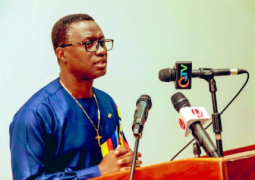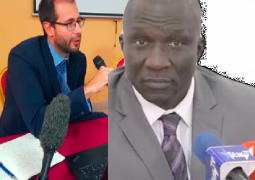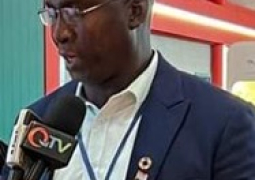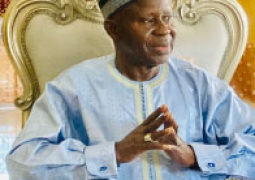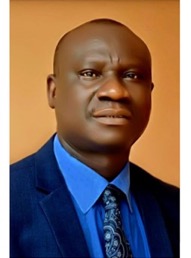
Speaking in an interview on Coffee Time, Governor Saidy highlighted that the economy would face some challenges, as the US increases its tariffs.
“Recently the U.S. authorities decided to introduce tariffs, for the entire world and we fall in the 10 percent bracket,” the Governor said. “And what this will do is affect trade, which are imports into the country, because countries are going to now feel constrained in terms of buying and selling goods because of this tariff. As we are import dependent country, this is going to affect our trade and supply of goods to the country. So, inflation is likely to increase.”
Recognising that immigration is an issue, he said: “They intend to deport people. And The Gambia is not an exception. We have a lot of Gambians in the U.S. And the Gambia depends highly on Diaspora remittance; therefore, if that number shrinks, Diaspora remittance is going to reduce and it may affect supply of foreign currency here and the exchange rate.”
However, he said: “We've gone through COVID, Russia-Ukraine challenges. Some of these geopolitical challenges depend on how you manage as a country and a central bank.
“And we believe we'll be able to manage it in a very prudent manner so that the resilience of our economy can be there. Despite these challenges, we expect the economy to grow by 5.9 percent in 2025.”
This positive expectation is encouraged by The Gambia’s composite index of economic activities, he said: “We do have information on investments, private sector, public investment, in particular, a lot of road building, plus other public assets that are going to be built, tourism growth, plus other factors, agricultural production.
“We look at a whole range of economic activities that are going to happen here, both from the domestic economy side and from external sector investments. And based on the totality of those evidences, our model came out with 5.9% growth.”
Governor Saidy said the Bank is also looking at increases in the activities of the capital market. “Because what we are trying to do is to ensure access to finance,” he explained. “Last year, the minister of finance, at the time he was presenting the budget speech at parliament, mentioned that SDF is going to be converted to a development bank.
“SDF applied to the central bank to get a banking licence. And they met all the requirements, and we issued a licence to them. And that licence is with SDF to now be turned to a development bank. This is expected to create access to finance and impact the growth of the economy.”
Read Other Articles In Headlines
